Josephine Simon. RN, RM, BNSc. Freelance Health Writer and DLHA Volunteer.
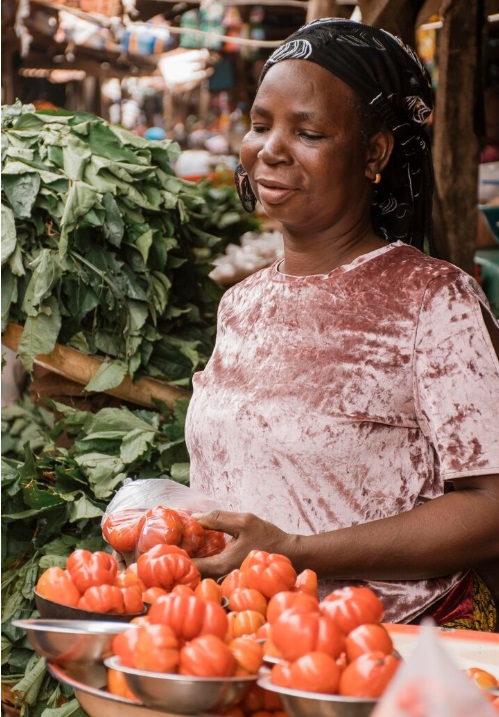
An African woman vegetable seller holding tomatoes and leafy vegetables. Image credit: Freepik
Living with diabetes in Africa requires careful attention to diet and blood sugar management. This can be achieved through diabetes-friendly African foods and healthy snack. For African diabetics seeking affordable diabetic-friendly foods, understanding proper nutrition and traditional African diet options is crucial for effective diabetes management.
Diabetes mellitus represents a group of metabolic disorders characterized by persistently elevated blood sugar levels. Diabetes can occur either when the body cannot produce its own insulin or when it cannot effectively use the insulin it has produced [1]. Type 1 diabetes, often diagnosed in childhood or early adulthood, develops when the immune system attacks and destroys insulin-producing cells in the pancreas. This form requires lifelong insulin therapy for survival.
Learn more about type 1, type 2 and gestational diabetes
Even though medical interventions through insulin or oral medications play a vital role in diabetes management, diet remains a cornerstone of blood sugar control.
Regular physical exercise helps improve insulin sensitivity and maintains healthy body weight, but without proper nutrition, exercise alone cannot effectively manage blood sugar levels.
The food choices you make directly impacts your blood glucose levels, making dietary management an essential skill for everyone living with diabetes. This is particularly true in Africa, where access to advanced medical care may be limited in some regions, making lifestyle modifications even more crucial for disease management.
Managing diabetes in Africa presents unique challenges, from limited access to specialized foods, to balancing traditional dietary preferences with health needs [2]. However, with thoughtful choices and local ingredients, it's possible to enjoy delicious, culturally-appropriate snacks while maintaining healthy blood sugar levels.
The key lies in understanding how different foods affect blood sugar and making informed choices that blend both health requirements and cultural traditions.
The aim of this article is to provide African adults living with diabetes a comprehensive guide to healthy, nutritious, and culturally-relevant snack options that can help manage their blood sugar levels.
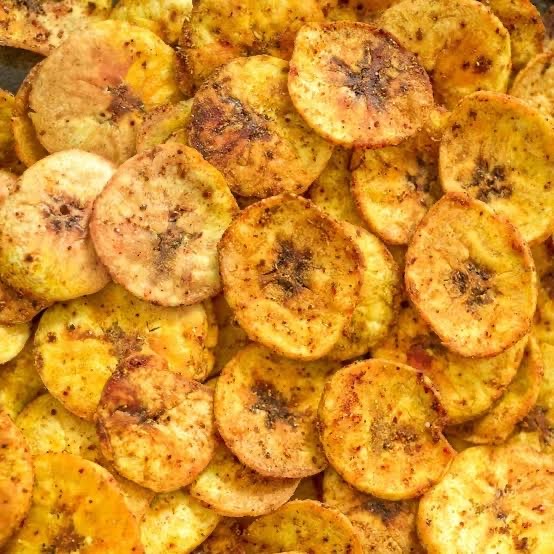
Roasted plantain chips. Source
Unripe plantains, when thinly sliced and carefully roasted, makes for satisfying snacking without spiking blood sugar levels. The traditional preparation involves brushing thin slices with minimal oil before oven-roasting or air-drying.
These chips offer a rich source of resistant starch and potassium, making them an excellent choice for blood sugar control. For the budget-conscious, preparing a batch during plantain season can provide snacks for the entire week.

Boiled eggs with pepper sauce.
A simple yet satisfying snack to consider is hard-boiled eggs spiced with homemade pepper sauce. Eggs are protein-rich, without any carbohydrate. This combination provides sustained energy while incorporating traditional flavors.
Local eggs from community farmers often prove more economical and fresher than store-bought alternatives.
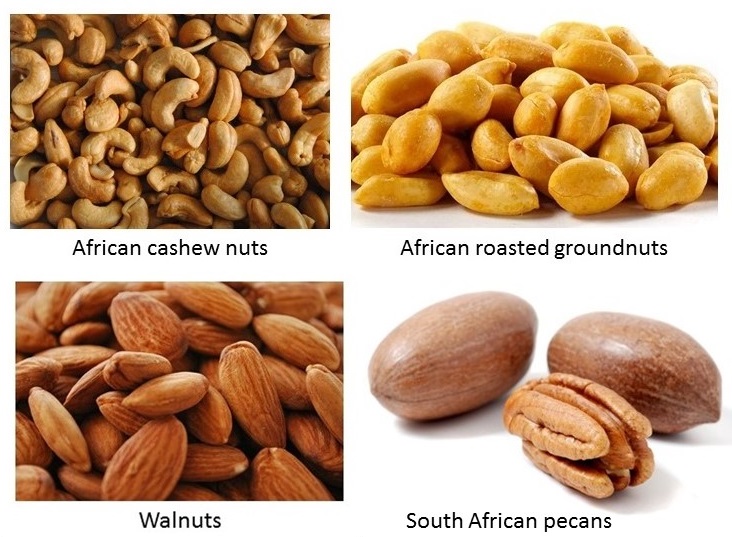
Varieties of nuts in Africa
The African continent has an abundance of nutritious nuts, from groundnuts to cashews and tiger nuts (aki Hausa). These nuts, when dry-roasted without added oils or salt, provide essential healthy fats and protein that help stabilize blood sugar levels and are a great source of energy.
You could consider buying nuts during harvest season and storing them properly to maintain freshness and reduce costs.
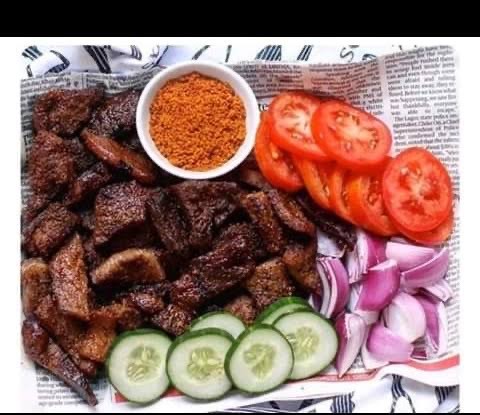
Nigerian skewered meat (Suya) and vegetables in a newspaper wrap with with a small bowl of spices. Source
Grilled and spiced skewered beef, known in Nigeria for example as “Suya”, when prepared with lean meat and served alongside fresh cucumber, creates a balanced snack rich in protein and hydrating vegetables.
The key lies in portion control and choosing affordable cuts of meat while maintaining the authentic spice blend that makes this snack uniquely African.
.jpg)
Sugar free crackers
Homemade crackers using local grains like millet or sorghum provide complex carbohydrates and fiber. These traditional grains offer sustained energy release and can be prepared in batches, making them both economical and convenient.
The preparation process allows for control over ingredients while maintaining cultural authenticity. If you don’t have the time to make them, you could search out healthy crackers options in stores.
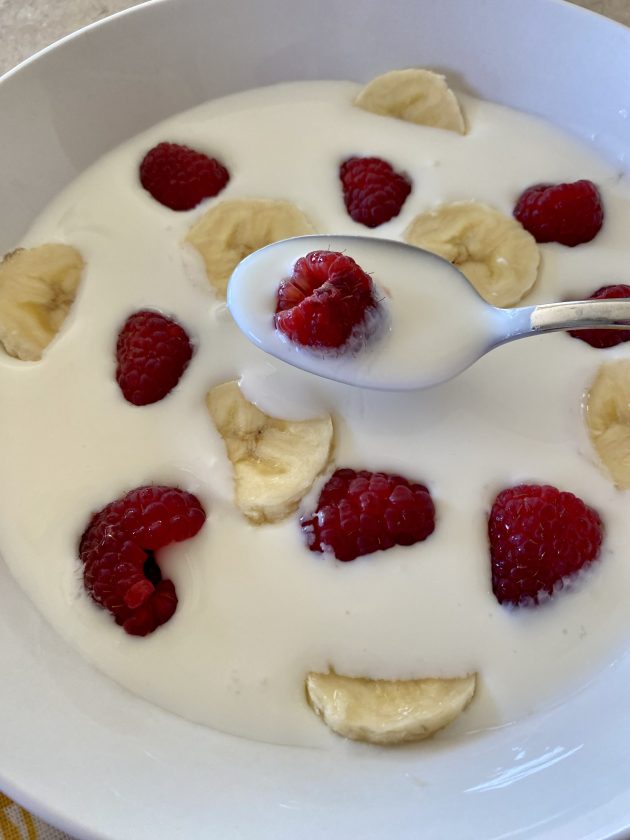
A bowl of homemade yoghourt with fruits
The combination of plain yogurt with carefully portioned local fruits creates a balanced snack rich in probiotics and natural sweetness.
Pawpaw, bananas, watermelons and other seasonal fruits can be paired with homemade yogurt for a cost-effective option that promotes gut health and at the same time satisfies sweet cravings without the risk of a drastic blood sugar level spike.
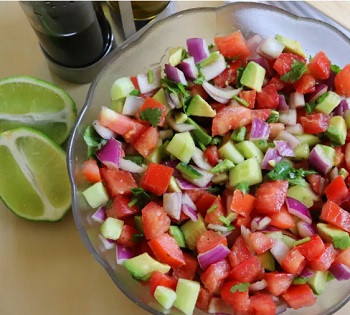
East Africa vegetable salad with lime. Image credit: Meals by Mavis
A simple combination of fresh tomatoes, onions, and cucumber dressed with lime juice offers a refreshing, low-calorie option. This market-fresh salad provides essential vitamins and fiber while keeping blood sugar stable.
Purchasing vegetables in season ensures both affordability and optimal nutrition.
Be sure to wash vegetables purchased from local markets properly before eating them.
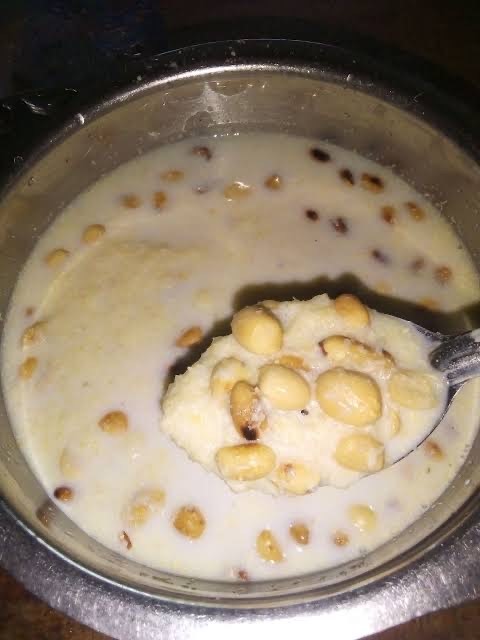
Fermented cassava granules with roasted groundnuts. Source
When portioned appropriately, fermented and roasted cassava flakes or granules known popularly in Nigeria as “Garri” or “Gari” paired with roasted groundnuts (and milk) offers a satisfying mix of resistant starch and protein.
This deeply traditional combination requires careful portion control but provides a familiar comfort food option for those managing diabetes.
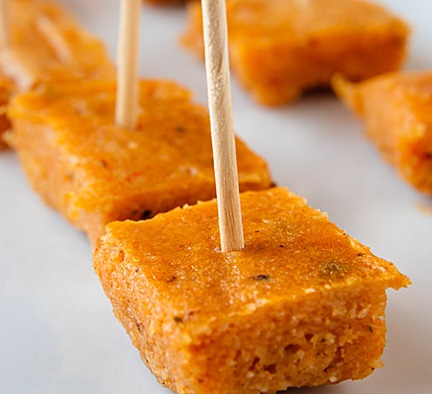
Small cubes of steamed bean pudding on cocktail sticks
Small portions of steamed bean pudding, popularly called “moin-moin” in Yoruba speaking region of Nigeria, prepared with brown beans, deliver plant-based protein and fiber. This traditional steamed pudding can be made in advance, portioned, and stored in a refrigerator for convenient snacking throughout the week.
Using local beans and preparing in bulk helps maintain affordability. Moin-moin could also be taken with garri and milk or whole wheat bread for a more satisfying effect.
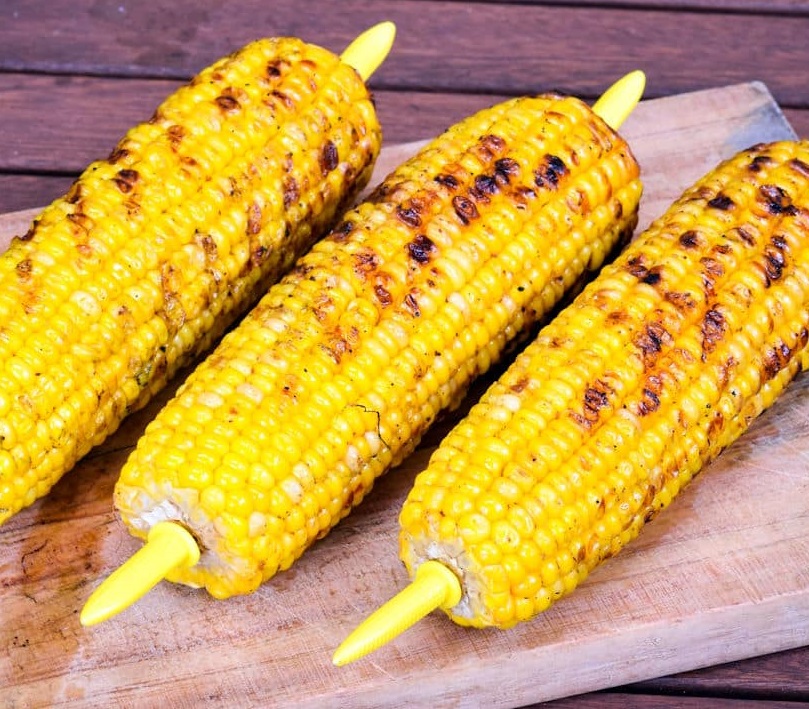
Roasted corn on cobs.
Boiled or roasted corn paired with fresh coconut pieces provides a balanced combination of fiber and healthy fats. This seasonal treat offers moderate natural sugars while incorporating traditional cooking methods.
Purchasing corn during peak season ensures the best value and saves you some money. This is also a good snack for family bonding time since it is widely accepted culturally.
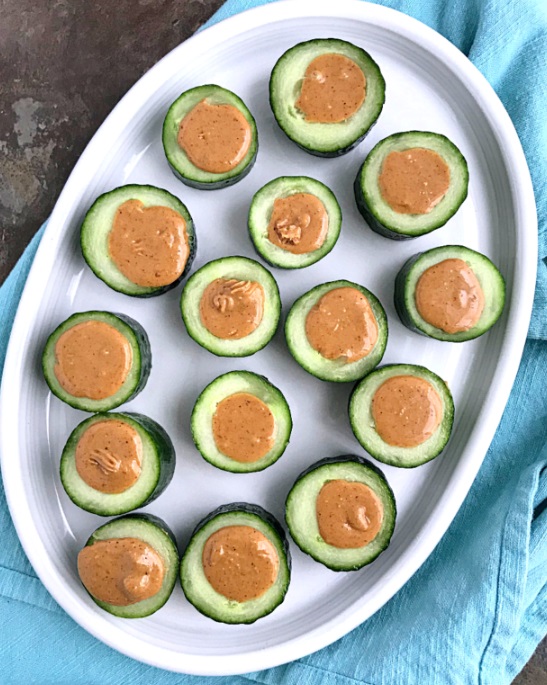
Cucumber slices with groundnut paste topping. Source
Fresh cucumber slices paired with sugar-free groundnut paste create a hydrating, nutrient-rich snack.
This combination offers healthy fats and protein while keeping carbohydrates low. Making groundnut paste at home significantly reduces cost while ensuring quality control.
-drink.jpg)
Bottles of chilled homemade hibiscus (Zobo) drink. Source
Hibiscus tea, popularly called “Zobo drink” in Nigeria is prepared with lime and traditional spices but without added sugar, provides a refreshing beverage rich in antioxidants.
This cultural favorite can be prepared in large batches and stored properly in a refrigerator for an economical drinking option throughout the week.
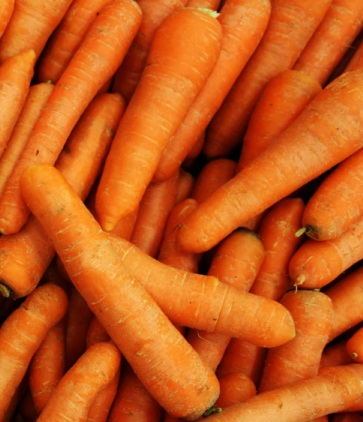
Fresh carrots
Fresh carrots, either eaten alone, or seasoned with traditional African pepper spices offer a crunchy, satisfying snack rich in vitamin A and fiber. This simple preparation method transforms an ordinary vegetable into a flavorful treat while maintaining its low glycemic properties.
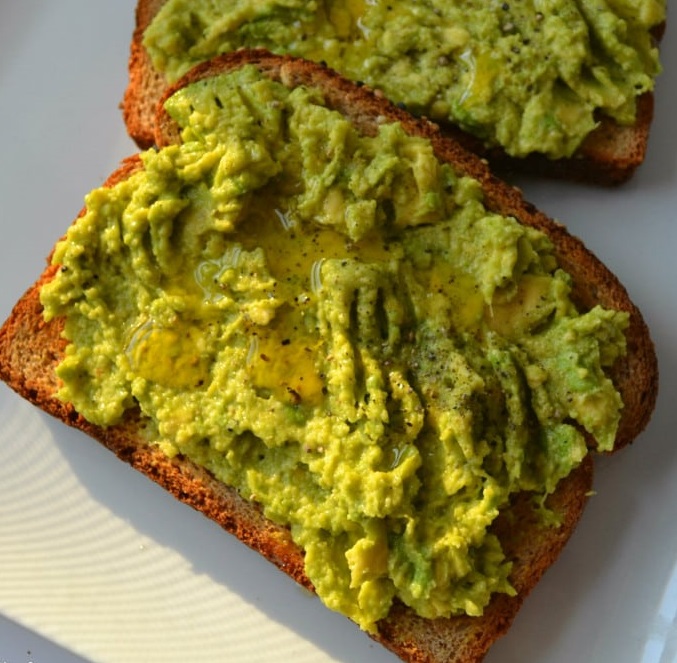
Wheat bread with avocado spread
Local whole grain bread topped with mashed avocado creates a filling snack rich in complex carbohydrates and healthy fats.
This combination provides sustained energy while incorporating readily available ingredients. Choosing local whole grain alternatives helps maintain both tradition and an affordable budget.
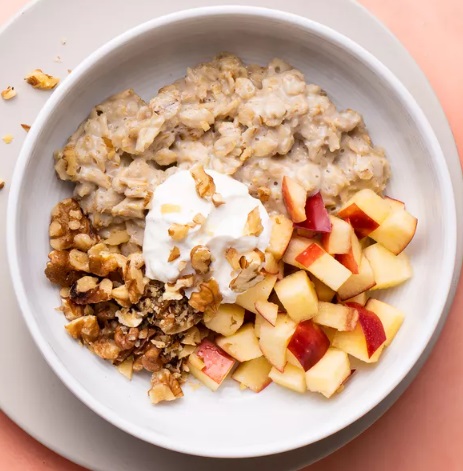
Oat meal bowl with fruits and nuts
Oats prepared with either milk, or local spices and mixed with indigenous nuts offer a familiar yet healthy snack option.
This preparation method combines the benefits of fiber-rich oats with the protein and healthy fats from local nuts, creating a satisfying and blood sugar-friendly option.
Creating sustainable snacking habits involves more than just choosing the right foods. Smart shopping practices, such as purchasing seasonal produce and buying in bulk during harvest time, help maintain affordability while ensuring access to healthy options.
Traditional preservation methods like drying and fermenting extend the life of seasonal products, making healthy snacking more sustainable.
Portion awareness plays a crucial role in blood sugar management. Using traditional serving vessels and paying attention to natural hunger cues helps maintain appropriate portions.
Consider keeping a food diary to track how different snacks affect your blood sugar levels, allowing for personalized adjustments to serving sizes and combinations.
Managing diabetes through snacking doesn't mean you have to abandon traditional African foods or invest in expensive special diets.
By thoughtfully selecting local, whole ingredients and preparing them using traditional methods, you can create satisfying snacks that support your health while embracing your cultural heritage.
The key to successful diabetes management through snacking lies in understanding how different foods affect blood sugar levels, choosing whole and unprocessed options when possible, and maintaining appropriate portions. Regular consultation with your healthcare provider helps ensure that dietary choices align with your health needs and treatment plans.
Through careful selection of these nutritious, affordable snack options, you can maintain stable blood sugar levels while enjoying familiar flavors and ingredients.
Remember that individual responses to foods vary, this therefore makes personal monitoring and adjustment essential for successful diabetes management with traditional African snacking options.
World Health Organization. Diabetes [Internet]. Geneva: WHO; 2023 [cited 2024 Nov 19]. Available from here.
Alt Descriptions
DATELINEHEALTH AFRICA INC., is a digital publisher for informational and educational purposes and does not offer personal medical care and advice. If you have a medical problem needing routine or emergency attention, call your doctor or local emergency services immediately, or visit the nearest emergency room or the nearest hospital. You should consult your professional healthcare provider before starting any nutrition, diet, exercise, fitness, medical or wellness program mentioned or referenced in the DatelinehealthAfrica website. Click here for more disclaimer notice.